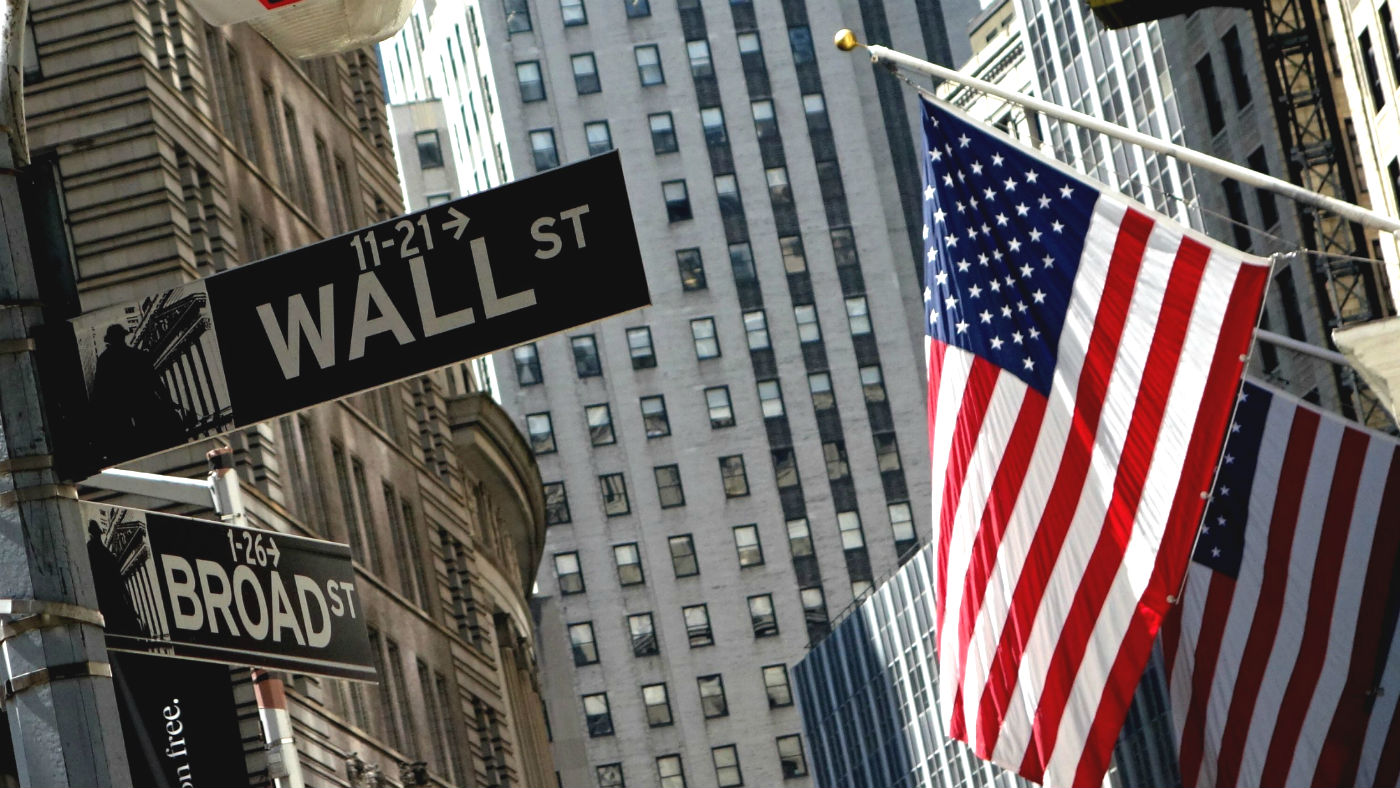Financial crash anniversary: how the world has changed
The Week looks at the lasting economic, political and social consequences of the 2008 crisis

A free daily email with the biggest news stories of the day – and the best features from TheWeek.com
You are now subscribed
Your newsletter sign-up was successful
On 15 September 2008, one of the titans of Wall Street filed for bankruptcy, kicking off the worst financial crisis since the Great Depression.
“We came as close as we have ever come in history to a total cardiac arrest, not just of the American economy, but the entire world economy,” says US historian Adam Tooze.
A decade later, the collapse of Lehman Brothers and the global recession that followed continue to impact everything from politics to birth rates.
The Week
Escape your echo chamber. Get the facts behind the news, plus analysis from multiple perspectives.

Sign up for The Week's Free Newsletters
From our morning news briefing to a weekly Good News Newsletter, get the best of The Week delivered directly to your inbox.
From our morning news briefing to a weekly Good News Newsletter, get the best of The Week delivered directly to your inbox.
Financial consequences
Wall Street has come a long way from the dark days of 2008. US stock markets are almost double what they were before the crash, with the S&P 500 entering the longest bull market in history this summer, and President Donald Trump boasting of record gains in the economy.
But “large parts of America have not recovered from the crisis”, historian Tooze, author of Crashed: How a Decade of Financial Crises Changed the World, told PBS NewsHour.
The Federal Reserve Bank of San Francisco estimates that the average American is roughly $70,000 (£53,400) worse off as a result of lost growth in the US economy.
A free daily email with the biggest news stories of the day – and the best features from TheWeek.com
“That is not something we’re ever going to get back, regardless of what happens in the stock market,” Tooze argues.
Speaking at a recent New York TimesTalks event, Senator Elizabeth Warren agreed that the impact is still being felt across the country.
“Families live one bad diagnosis, one pink slip away from financial calamity,” she said. “They read every headline that says ‘economy great’ and they think, ‘What the hell happened to my family?’”
In the UK, research commissioned by the BBC found that people now aged from 30 to 39 lost an average of 7.2% in real terms, or £2,057 ($2,700), a year between 2008 and 2017.
Political consequences
The most noticeable political impact of the financial crash was a loss of faith in the Establishment.
Anger at government bailouts of the banks “opened the door to a more radical politics on the Right and the Left”, Tooze says.
Trump’s promise to “drain the swamp” resonated with voters who had been hit hard by the crisis and were fed up with Wall Street’s influence in Washington.
Across the Atlantic, the anti-austerity message spread by Labour leader Jeremy Corbyn won over significant swathes of the electorate in the UK.
However, the gains of extreme right-wing parties far outweigh those on the left, research suggests.
“After a crisis, voters seem to be particularly attracted to the political rhetoric of the Extreme Right, which often attributes blame to minorities or foreigners,” according to researchers from the Munich-based Centre for Economic Studies.
“In the aftermath of the 2007-08 global crisis, far-right and right-wing populist parties more than doubled their vote share in many advanced economies,” the experts add.
Unexpected social consequences
In the decade since the recession, American women had 4.8 million fewer babies than demographers were predicting, and the gap is continuing to widen, the BBC reports.
“Every year when I look at the fertility data I expect the number of births to go up and it hasn’t,” says Professor Kenneth Johnson of the University of New Hampshire.
The financial crash also appears to have eroded our trust in one another, according to the news site.
Just 19% of millennials agree with the statement that “generally speaking, most people can be trusted” - compared with 31% for the generation before us, and 40% for our parents’ generation, the BBC says, citing research from The Pew Charitable Trusts.
-
 Sepsis ‘breakthrough’: the world’s first targeted treatment?
Sepsis ‘breakthrough’: the world’s first targeted treatment?The Explainer New drug could reverse effects of sepsis, rather than trying to treat infection with antibiotics
-
 James Van Der Beek obituary: fresh-faced Dawson’s Creek star
James Van Der Beek obituary: fresh-faced Dawson’s Creek starIn The Spotlight Van Der Beek fronted one of the most successful teen dramas of the 90s – but his Dawson fame proved a double-edged sword
-
 Is Andrew’s arrest the end for the monarchy?
Is Andrew’s arrest the end for the monarchy?Today's Big Question The King has distanced the royal family from his disgraced brother but critics claim a ‘fit of revolutionary disgust’ could still wipe them out
-
 Currencies: Why Trump wants a weak dollar
Currencies: Why Trump wants a weak dollarFeature The dollar has fallen 12% since Trump took office
-
 TikTok: New owners, same risks
TikTok: New owners, same risksFeature What are Larry Ellison’s plans for TikTok US?
-
 Trump wants a weaker dollar, but economists aren’t so sure
Trump wants a weaker dollar, but economists aren’t so sureTalking Points A weaker dollar can make imports more expensive but also boost gold
-
 Leadership: A conspicuous silence from CEOs
Leadership: A conspicuous silence from CEOsFeature CEOs were more vocal during Trump’s first term
-
 The end for central bank independence?
The end for central bank independence?The Explainer Trump’s war on the US Federal Reserve comes at a moment of global weakening in central bank authority
-
 Can Trump make single-family homes affordable by banning big investors?
Can Trump make single-family homes affordable by banning big investors?Talking Points Wall Street takes the blame
-
 Phish food for thought: Ben & Jerry’s political turmoil
Phish food for thought: Ben & Jerry’s political turmoilIn the Spotlight War of words over brand activism threatens to ‘overshadow’ the big ice cream deal
-
 What a rising gold price says about the global economy
What a rising gold price says about the global economyThe Explainer Institutions, central banks and speculators drive record surge amid ‘loss of trust’ in bond markets and US dollar